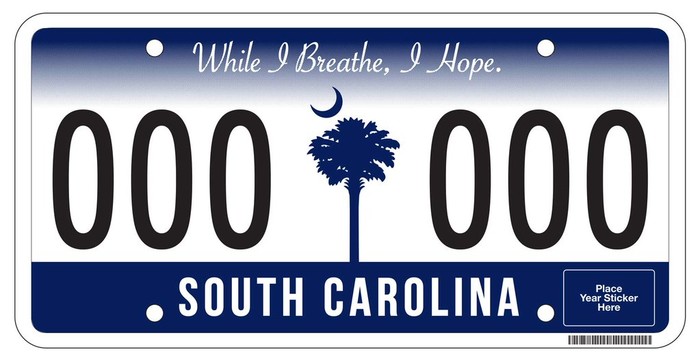1. Sleep Paralysis
When you dream, your brain stops your body from moving so you don't thrash around and hurt yourself. Those suffering from sleep paralysis either become paralyzed before they are asleep, or cannot move after waking up.
In addition to being frozen, often they will experience horrifying hallucinations - they imagine demons or a strange person with them in their room, or have the sensation of being touched or having someone call out their name. Lasting somewhere between a few seconds or even up to an hour, this disorder is related to jet lag, sleep deprivation, or consistently sleeping flat on your back.
2. REM Behavior Disorder
People with REM Behavior Disorder (RBD) lack the muscle paralysis to keep them still when dreaming, and act out their dreams. They move their limbs, talk, scream, hit & punch sleeping partners or inanimate objects, or even jump out of bed and begin sleep walking or running.
RBD is usually noticed when it causes danger to a bed partner, or when the person suffering from RBD causes bodily harm to himself/herself. People may spend years of talking, jerking, or twitching during dreaming before they begin fully acting out their dreams.
3. Sudden Unexpected Death Syndrome
In cases of Sudden Unexpected Death Syndrome (SUDS) a normal, healthy young person goes to sleep and never wakes up. Just like infants with Sudden Infant Death Syndrome (SIDS), the young person dies in their sleep for no apparent reason.
Some studies have shown it is more frequent in males of Asian descent, and other studies link it to those who consume too many carbohydrate-rich foods immediately before bedtime.
4. Exploding Head Syndrome
Not as literal as it sounds, those who experience this disorder hear a deafening sound that abruptly wakes them. The sounds range from explosions, to clashing cymbals, or loud thunder, and only exist in the sufferer's mind.
There is no physical pain associated with EHS, but some people develop insomnia because the sounds make them afraid to fall asleep.
5. Sleep Eating
Sleep Eaters will frequently head to the kitchen to grab a snack in the middle of the night and never remember doing so. More common in women than men, those affected eat almost every night - often up to 6 or 8 times per night. Sometimes the person prepares an entire meal. How bad could that be, right?
Well as many as 1/3 of Sleep Eaters have hurt themselves while preparing or eating food. And most meals don't usually make sense, with some people eating cat food, raw chicken, or fistfuls of coffee grounds.
6. Sleeping Beauty Syndrome
As the name suggests, those suffering from Sleeping Beauty Syndrome (known medically as Kleine-Levin Syndrome) spend around 20 hours per day asleep. Some can easily sleep for days at a time.
In the Disney version, Sleeping Beauty could only be awoken by a kiss from her Prince Charming. In the real world doctors try prescribing amphetamines, but they seldom help change the patient's sleeping habits.
7. Pseudoinsomnia
Many of us have suffered from classic insomnia in the past; nights when you couldn't fall asleep and instead spent hours tossing and turning before getting up and going to work in the morning grumpy and exhausted.
Those with Sleep State Misperception, or Pseudoinsomnia, think they suffer from chronic insomnia but actually have vivid dreams of not being able to fall asleep. Instead of waking up refreshed they think they spent the entire night wide awake.
Often, the disorder is discovered by a romantic partner who assures the person they are sleeping just fine. While prescriptions for sleeping pills fail (because they person really doesn't have trouble sleeping), most people are cured after a correct diagnosis from their doctor.
8. Sexsomnia
The sexual behavior of those with Sexsomnia has been organized into three categories:
Annoying, but not harmful: loud sexual moaning, attempts to remove clothing, and mumbling inappropriate sexual phrases.
Annoying, and potentially self-harming: All the behavior above, but also sometimes aggressive masturbation that can leave bruising and soreness the next morning.
Severe and potentially harmful to others: In addition to everything else, these behaviors involve violent sexual conduct resulting in broken bones, or even accusations of assault or battery.
Many suffering from Sexsomnia also have other psychiatric problems, and the symptoms of Sexsomnia can often be treated with psychotropic medications.
9. Night Terrors
People with night terrors experience dreams more horrifying than regular nightmares, and cannot be immediately woken from them. Even if you tried to awaken someone having a night terror, the dream might continue for another 20 minutes.
Imagine your worst nightmare, but 10 times more intense, and you cannot wake up.
10. Narcolepsy
Someone with Narcolepsy doesn't necessarily sleep any more or less than the average person, but they randomly become very tired. Narcolepsy can be extremely dangerous depending on what the person is doing when they fall asleep - like driving a car or operating power tools.
Not all people suffering from Narcolepsy are correctly diagnosed because the symptoms often develop in adolescence and gradually get worse through young adulthood. People who suffer from Narcolepsy can also experience Cataplexy, which is a sudden loss of muscle control brought on by laughing, surprise, or anger, causing the person to slur their words or even collapse.
11. Obstructive Sleep Apnea
One of the most common sleep disorders, Obstructive Sleep Apnea refers to episodes where the person briefly stops breathing during sleep. This happens most frequently to people who are overweight, use alcohol or sleeping pills, sleep on their backs.
It is a serious medical condition which often goes undiagnosed. Symptoms include loud snoring, headaches in the morning and tiredness after a full night's sleep. Sleep Apnea is dangerous on its own, but also increases risk for high blood pressure, heart attack, stroke, and cancer.
12. Bruxism
Do you constantly wake up with facial pain or bad headaches? Do you notice parts of your teeth getting thinner or cracking?
You may suffer from bruxism, a disorder where you grind your teeth or clench your jaw while asleep. There is no cure, but you should ask your doctor about botox injections or mouth guards.

